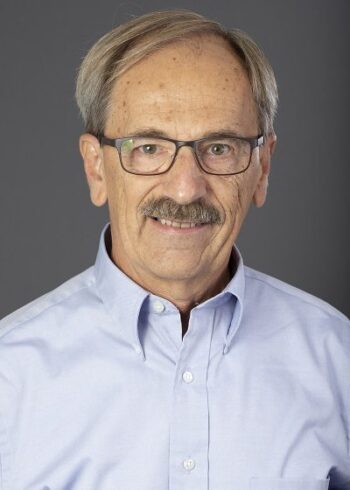From the Editor: An Engineer’s Career Path Can Take Many Turns

I’ve had enough time by now to get used to writing 2023 wherever a date is required. I’ve also had enough time to stop thinking about what could have been better last year and how this year could be an improvement.
I often try to look ahead and think about what the upcoming year may be remembered for, but events have already occurred in the last few weeks that make looking ahead a daunting task. We have record-breaking weather events, the return of COVID protocols, a radical change in the House of Representatives, and who knows what the economy will do.
So rather than trying to predict what this year will bring, I chose to look back at my career and think about some of the civil engineers I’ve known and how different or the same we are (the names may or may not be changed). Some of us stayed fairly close to our “roots” in civil engineering. Others used that knowledge base and the thought processes we learned to alter their careers significantly.
Engineers I Met Along the Way
A couple of my civil engineer relatives are designing bridges and various transportation facilities, much the same as I did (perhaps there’s some DNA factor involved) until I moved toward a more management-focused second half of my career. Now—and unexpectedly—I’m an adjunct instructor in civil engineering and writing a column for Informed Infrastructure.
One of my classmates, John, who graduated alongside me, decided early on to start his own residential construction business. John and his employees performed some work on my house when we lived in Indianapolis.
Mark and Bill started their careers in the same room as me. Mark went on to design bridges and transportation projects and eventually became the “go-to” expert in the region for structures. Unlike me, Mark chose to stay on the technical and design side of civil engineering. Bill went on to get an MBA and moved into the development arena at the State Department of Commerce, where he negotiated deals to attract economic development to the state. We worked together on building an interchange for a new manufacturing facility while I was still at INDOT. Bill then moved on to a large private company in a similar role.
I hired Jennifer some years ago, and she started in transportation design. She showed an interest in project site safety and developed a safety program for the telecommunications business line. After that, she worked as a lifecycle program manager for a chain store company. She now is self-employed, working with 9-1-1 technology.
Jordan worked with me in the design department at INDOT. During this time, he enrolled in law school and finished his degree while working. He became one of the attorneys for INDOT.
Greg was a hydraulics engineer when I first met him, sizing structures over rivers and creeks. Later in his career, he became the city engineer of a large Midwest city. Now he’s the senior executive vice president of a full-service architectural and engineering firm with more than 600 employees.
Tom was one of my supervisors while I was in Chicago. He later became a “corporate” employee and set directions and policies for our company. In addition, he served as a councilman in his town.
A woman I met a few years ago started her career laying out the infrastructure for a small community-development firm. She’s now the director of the sales department for a pharmaceutical company.
Janet, a civil engineer who served with me on an advisory committee, is currently working for a company that designs and manufactures firefighting equipment.
What Path Did You Follow?
There are many others who chose to stay in the more-traditional civil engineering discipline, as I did. But, as I tell my senior students, there are very few limits in selecting a direction for their career path. The education we receive and the thought processes we learn are valuable in many varied professions.
Think about the civil engineers you know and how varied their careers are. Inform any young people you meet about the broad opportunities available to civil engineers. If you’d like to, let me know what you’ve done with your degree.
About Robert Schickel
Robert Schickel was born in New Jersey and received his BS in Civil Engineering degree in 1971 from Valparaiso University in Indiana. His career started as a bridge design engineer and expanded to include design of various transportation facilities, including highways, bridges, rail lines and stations, and airport runways. Mr. Schickel managed engineering offices ranging from 20 to 140 people. He also served as a consultant to a large utility company. Mr. Schickel currently resides in Indiana and serves as Adjunct Professor for the College of Engineering at Valparaiso University. He enjoys his retired life at his lake house, playing golf, listening to music and spending time with his family, especially his grandchildren.


